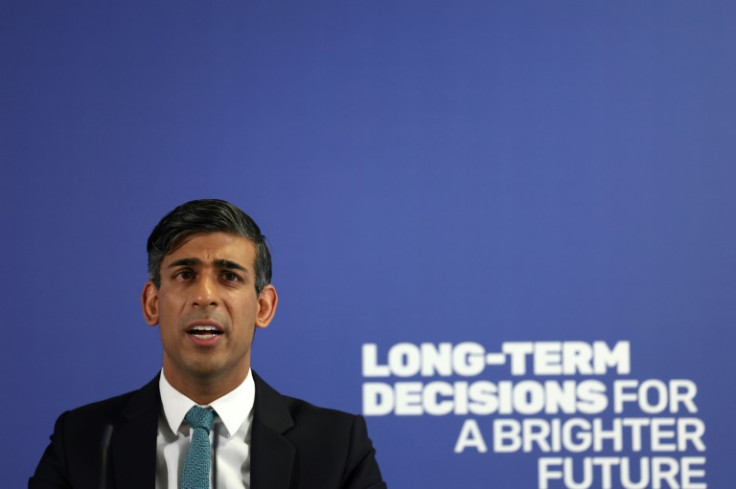
Prime Minister Rishi Sunak faces the COVID Inquiry today, regarding his role as Chancellor during the pandemic.
Among the questions he faces is the matter of his "lost" WhatsApps from the pandemic period – Sunak claims they have been "missing" since he changed phones.
The prime minister is the latest member of the COVID-19 cabinet to face the inquiry. Last week, former prime minister Boris Johnson defended his actions and hit out at "dramatic" representations of the Partygate revelations.
Sunak, who also led the controversial 'Eat Out to Help Out' scheme, opened the hearing today with an apology to families who had suffered losses due to government actions.
The UK Prime Minister said: "I am deeply sorry to all of those who lost loved ones and family members through the pandemic."
"Also, for all those who suffered in various different ways throughout the pandemic as a result of the actions that were taken."
Sunak added that it is "important we learn the lessons so we can better prepare in the future".
The prime minister said he would give evidence "in the spirit of constructive candour" to help the inquiry with its deliberations.
Hugo Keith KC, the lawyer for the inquiry, began by asking Sunak about his use of WhatsApp and his methods of communication.
The prime minister says he is "not a prolific user" of WhatsApp and that he mainly uses it for communication with his private office.
He added that he cannot access any of those messages sent during the pandemic as his phone has changed "multiple times" over the past few years.
"Any conversations or exchanges would have been recorded officially by my civil servants as one would expect," Sunak added.
The inquiry lawyer then moved on to press Sunak on how the ex-prime minister – Boris Johnson – would make decisions.
Keith shows the inquiry in an email sent by Sunak's principal private secretary which says: "On Monday I am just going to check where No 10 have got to and ensure our track for Tuesday. Until announced you never know!"
Keith suggests that this implies a degree of "backing and veering" in government decision-making.
But Sunak leapt to the defence of his former boss.
Decision-making is a "process", he replied, and Johnson would "go over the arguments" and "test out different points of view" and this might lead you to "change your mind".
"I don't think there's anything wrong with that," he adds.
Responding to further questions about Johnson's strategy, Sunak said that having a "vigorous debate" about the direction of policy was no bad thing at the time.
He added that it would have been "far worse" to have signed off on "momentous" decisions with no substantive discussion whatsoever.
So far, Sunak has offered little in terms of headlines regarding his pandemic actions.
However, he remains to be questioned on his role in the 'Eat Out to Help Out' scheme, which has been accused by many of causing a spike in COVID-19 infections.
Sunak faces the inquiry at a time when his authority as Prime Minister is facing a stern test.
His government's latest attempt to deport asylum seekers to Rwanda sparked the resignation of his immigration minister, who said it did not go far enough.
His former interior minister Suella Braverman also said the law was destined to fail, and urged Sunak to change course on immigration – a major political battleground in next year's expected general election.
At a hastily convened news conference in Downing Street last week, Sunak sought to appease right-wing Tories who want him to withdraw Britain from the European Court of Human Rights, to stop courts from blocking removals.
He also denied that a vote on the Rwanda legislation expected in parliament next week would amount to a confidence vote on his leadership.
The Rwanda plan is at the centre of the government's strategy to "stop the boats" – one of Rishi Sunak's five pledges he made at the beginning of his premiership.
Immediately after the Supreme Court declared the plan as illegal under international law, the government insisted it had been working on contingency measures and promised a revised treaty with Rwanda within days, along with emergency legislation in parliament.







